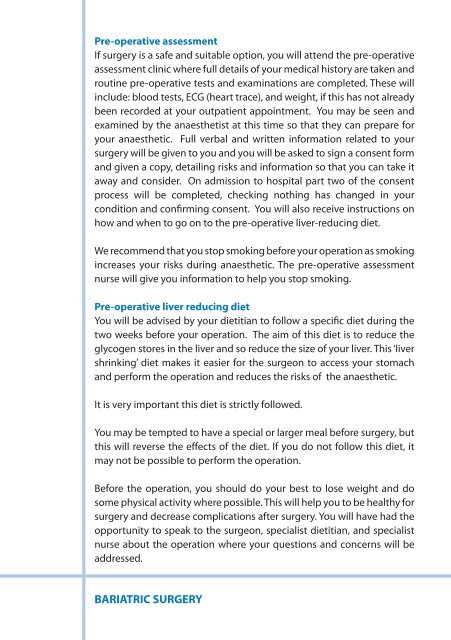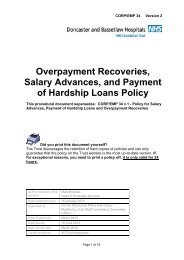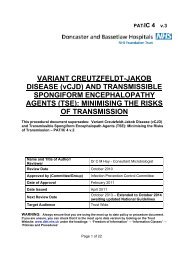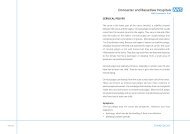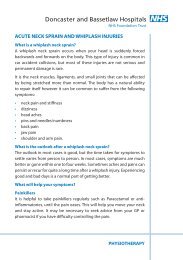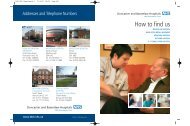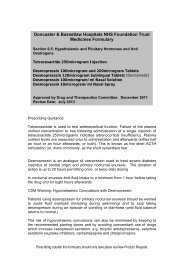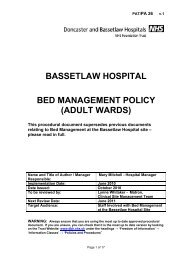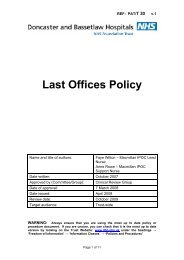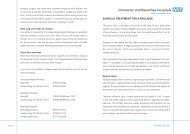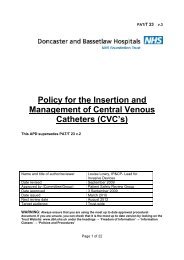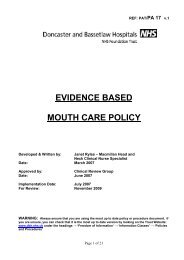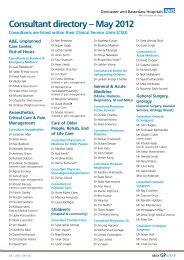SlEEvE GASTRECTomY SURGERY
SlEEvE GASTRECTomY SURGERY
SlEEvE GASTRECTomY SURGERY
Create successful ePaper yourself
Turn your PDF publications into a flip-book with our unique Google optimized e-Paper software.
Pre-operative assessment<br />
If surgery is a safe and suitable option, you will attend the pre-operative<br />
assessment clinic where full details of your medical history are taken and<br />
routine pre-operative tests and examinations are completed. These will<br />
include: blood tests, ECG (heart trace), and weight, if this has not already<br />
been recorded at your outpatient appointment. You may be seen and<br />
examined by the anaesthetist at this time so that they can prepare for<br />
your anaesthetic. Full verbal and written information related to your<br />
surgery will be given to you and you will be asked to sign a consent form<br />
and given a copy, detailing risks and information so that you can take it<br />
away and consider. On admission to hospital part two of the consent<br />
process will be completed, checking nothing has changed in your<br />
condition and confirming consent. You will also receive instructions on<br />
how and when to go on to the pre-operative liver-reducing diet.<br />
We recommend that you stop smoking before your operation as smoking<br />
increases your risks during anaesthetic. The pre-operative assessment<br />
nurse will give you information to help you stop smoking.<br />
Pre-operative liver reducing diet<br />
You will be advised by your dietitian to follow a specific diet during the<br />
two weeks before your operation. The aim of this diet is to reduce the<br />
glycogen stores in the liver and so reduce the size of your liver. This ‘liver<br />
shrinking’ diet makes it easier for the surgeon to access your stomach<br />
and perform the operation and reduces the risks of the anaesthetic.<br />
It is very important this diet is strictly followed.<br />
You may be tempted to have a special or larger meal before surgery, but<br />
this will reverse the effects of the diet. If you do not follow this diet, it<br />
may not be possible to perform the operation.<br />
Before the operation, you should do your best to lose weight and do<br />
some physical activity where possible. This will help you to be healthy for<br />
surgery and decrease complications after surgery. You will have had the<br />
opportunity to speak to the surgeon, specialist dietitian, and specialist<br />
nurse about the operation where your questions and concerns will be<br />
addressed.<br />
BARIATRIC <strong>SURGERY</strong>


